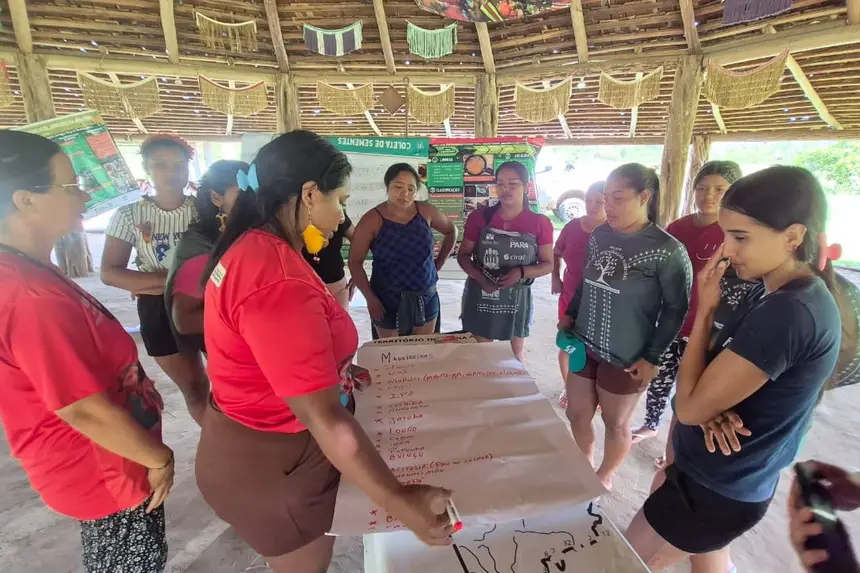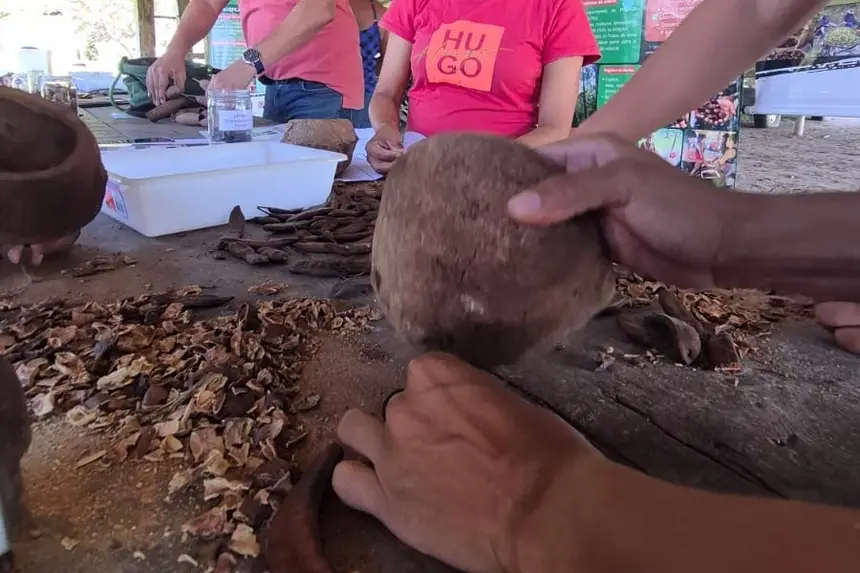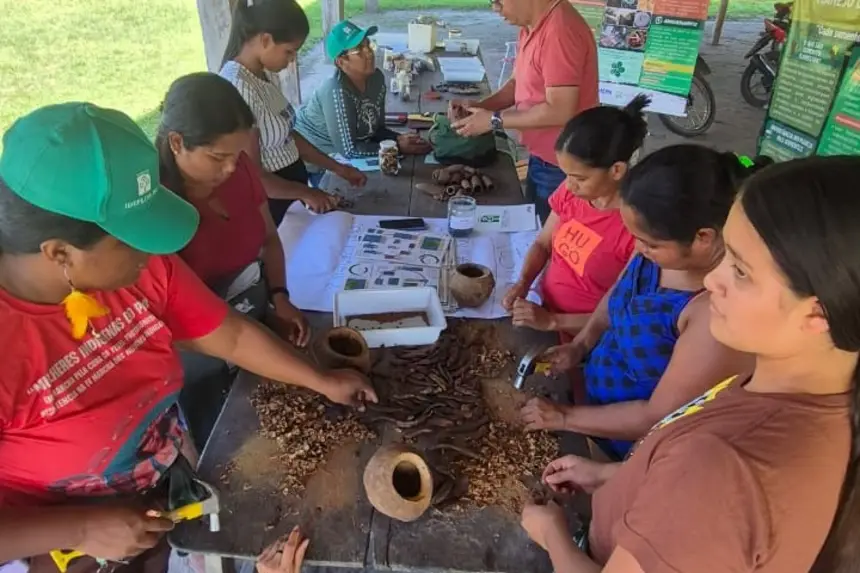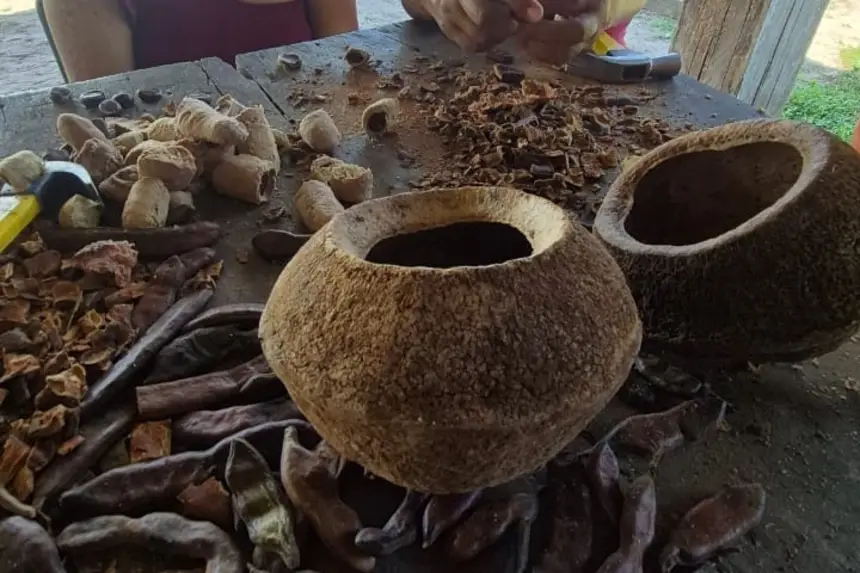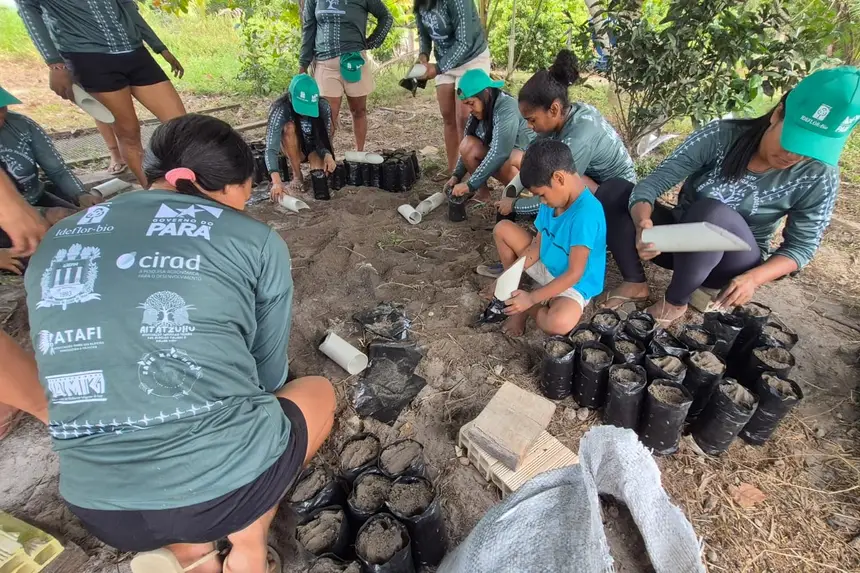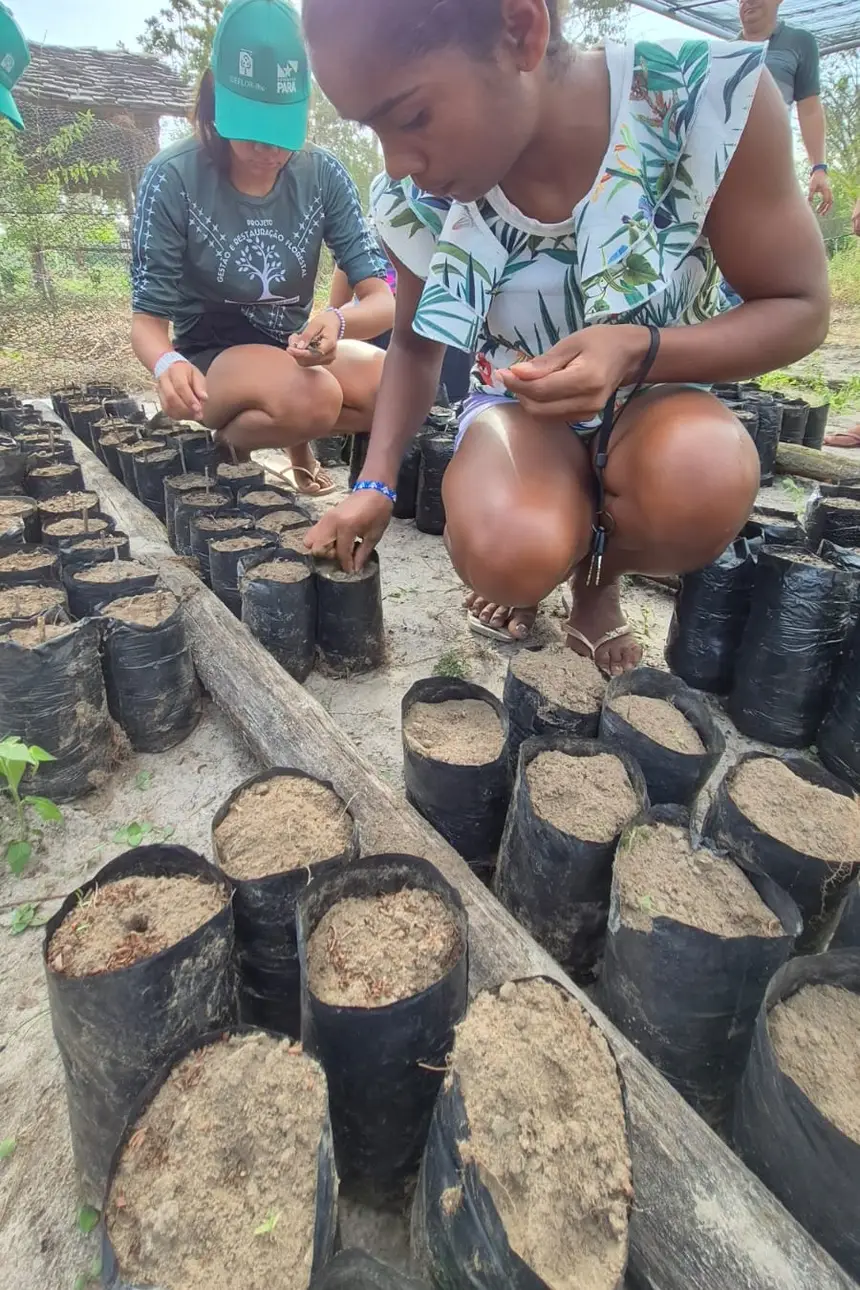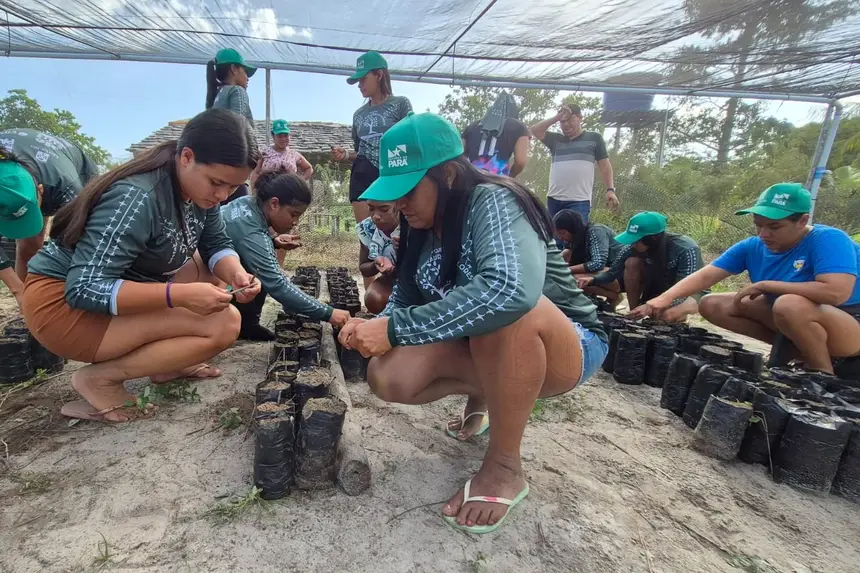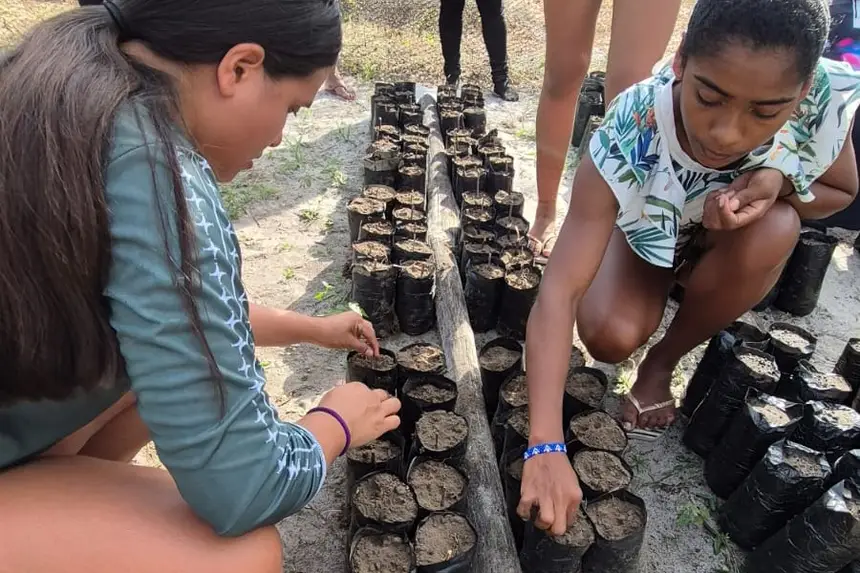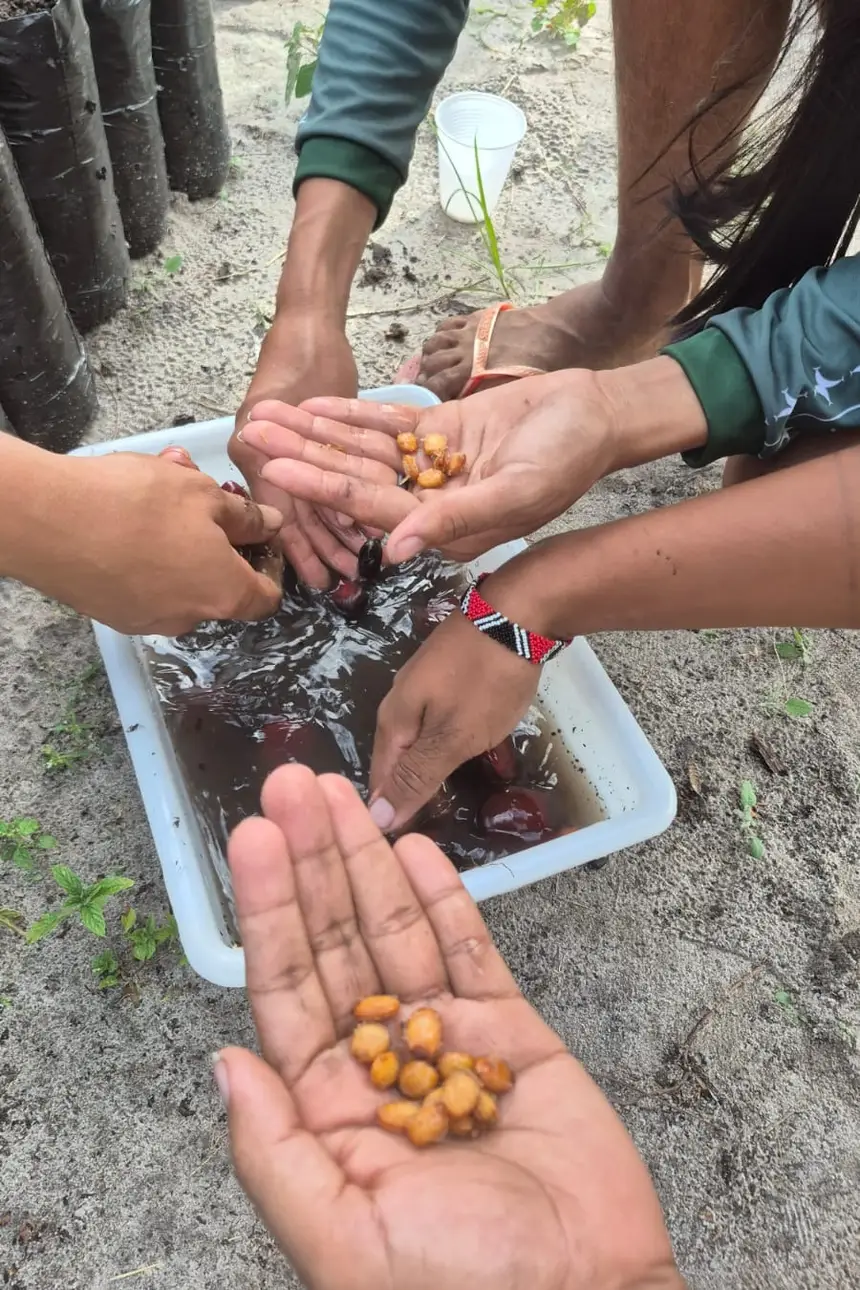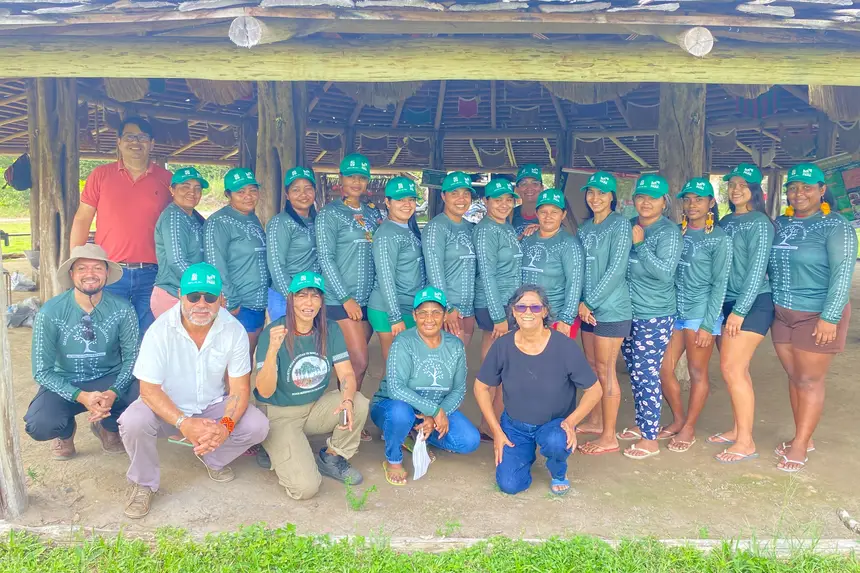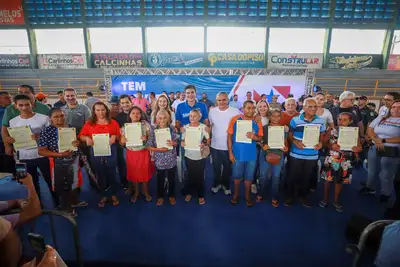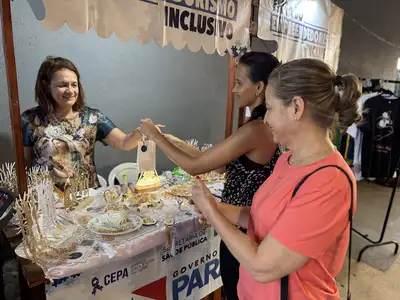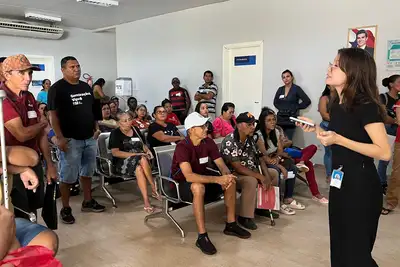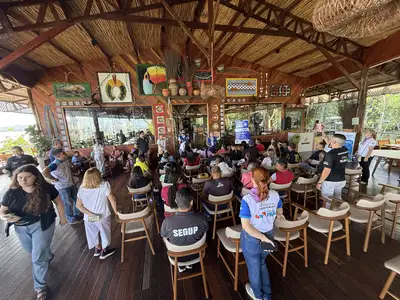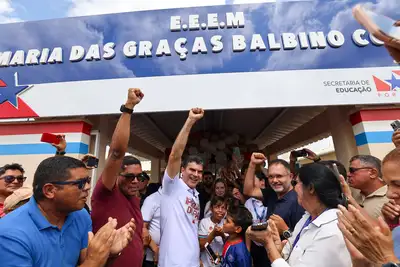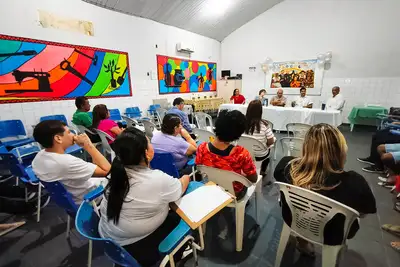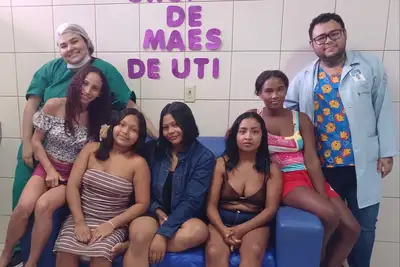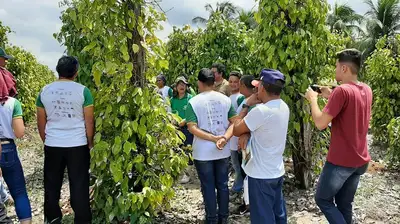Project trains indigenous women as agroforestry agents in the Alto Rio Guamá Indigenous Land
Activity coordinated by Ideflor-Bio and Uepa brought together 30 women from the region's villages in an intensive program that combined field practices and moments of dialogue on biocultural restoration
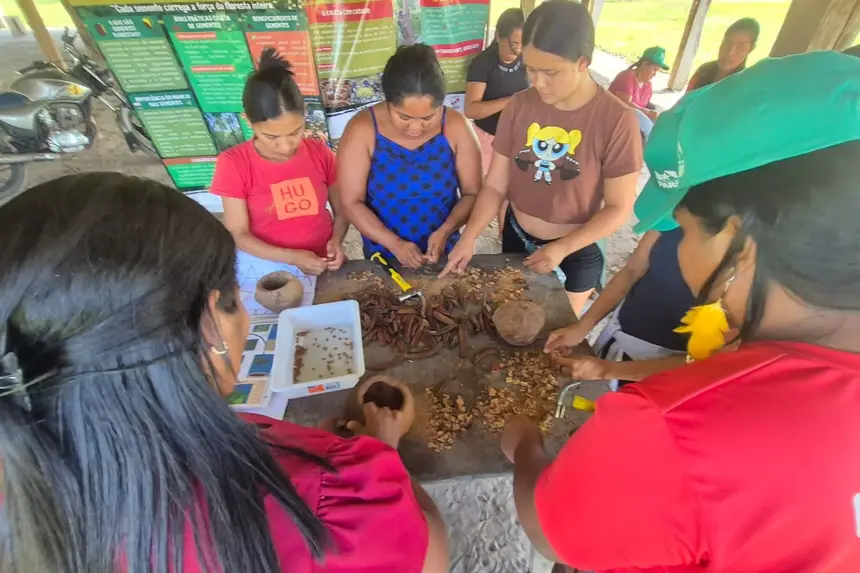
Between August 22 and 24, the Alto Rio Guamá Indigenous Land, in Santa Luzia do Pará, hosted the workshop "Caring for the Forest: Knowing, Collecting, and Sowing," the first stage of the training process for indigenous agroforestry agents. The activity brought together 30 women from the region's villages in an intensive program that combined field practices and moments of dialogue on biocultural restoration.
The workshop was marked by the integration of traditional knowledge and technical knowledge from universities and research institutions, aiming to strengthen indigenous environmental management and ensure the recovery of degraded areas. The program included discussion circles, collective mapping dynamics, recognition trails, seed collection efforts, and practices in the community nurseries already established in the Indigenous Land.
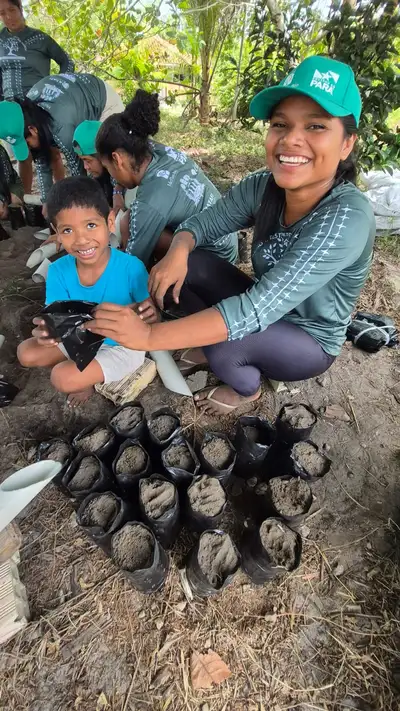
At the opening, the Forest Development and Biodiversity Institute of Pará (Ideflor-Bio) presented the Project for Supporting Management and Forest Restoration of the Alto Rio Guamá Indigenous Land, developed in partnership with the State University of Pará (Uepa), as well as the Agitasy Indigenous Association and the Indigenous Women’s Group of Guamá. The initiative aims to structure nurseries, train agroforestry agents, and produce seedlings of native species to reforest impacted areas, always respecting the culture and ways of life of local communities.
The work is also linked to the Nexus Project, coordinated by the Emílio Goeldi Paraense Museum (MPEG), the Federal Rural University of the Amazon (Ufra), and the Federal Institute of Pará (IFPA), which researches how human actions affect the forest, rivers, and Amazonian biodiversity. Together, the projects combine science and tradition to develop sustainable restoration pathways.
Learning - The environmental analyst of Ideflor-Bio and coordinator of the activity, Claudia Kahwage, emphasized the innovative nature of the training process. "Biocultural restoration is taking care of the forest by combining the knowledge of the elders with science. It is about planting and recovering areas that are sick, respecting the trees, medicinal plants, fruits, and spirits of the forest. It is about bringing back the life of the forest and strengthening the culture of the people who live in it," she explained.
During the three days of the workshop, participants learned techniques for substrate preparation, sowing, irrigation, seed collection and storage, as well as activities for pricking out and maintaining seedlings. The practices were accompanied by professors and technicians from Ufra – Capitão Poço Campus and IFPA – Bragança Campus, partners in the execution of the project.
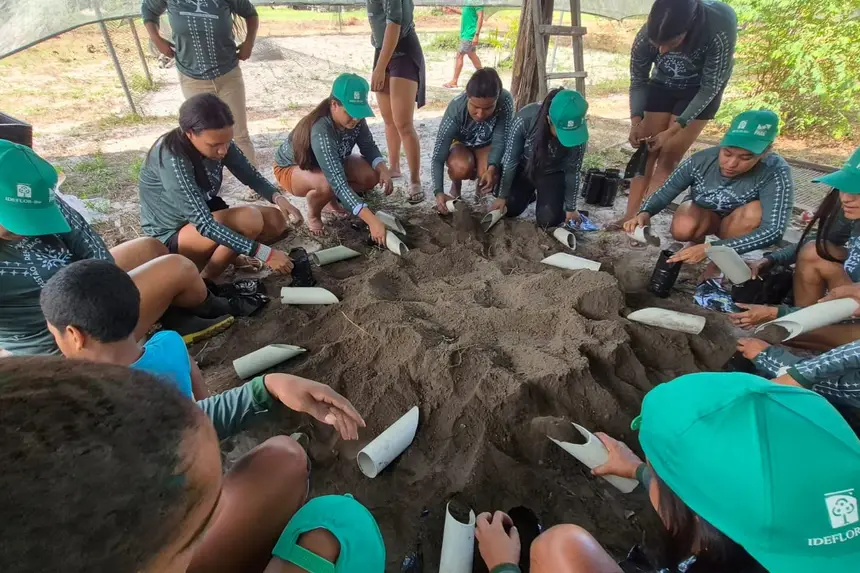
Protagonism - According to the director of Biodiversity Management at Ideflor-Bio, Crisomar Lobato, the training of agroforestry agents represents an important step in uniting indigenous protagonism and public conservation policies. "This work shows that the protection of the Amazon needs to be done with those who live in it. Indigenous women are taking a central role in restoration, caring for the forest and strengthening their communities. It is a model we want to expand to other regions of Pará," he highlighted.
The program concluded with a collective evaluation, in which participants reinforced their commitment to multiply the learnings in their villages and continue caring for the forest. The next step will be to monitor activities in the community nurseries and expand the restoration areas already initiated in the Alto Rio Guamá Indigenous Land.


